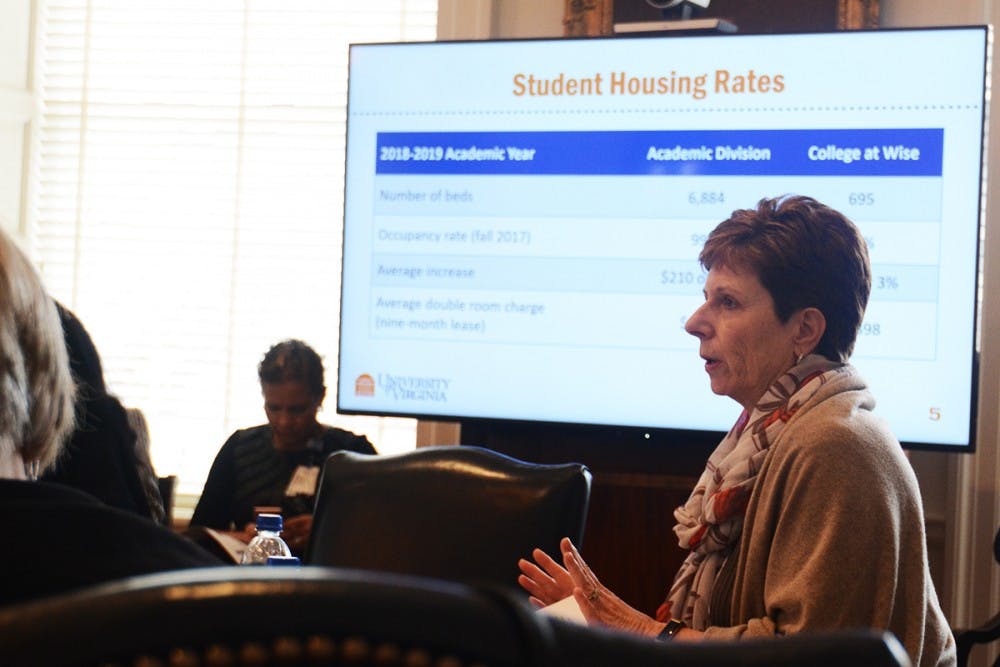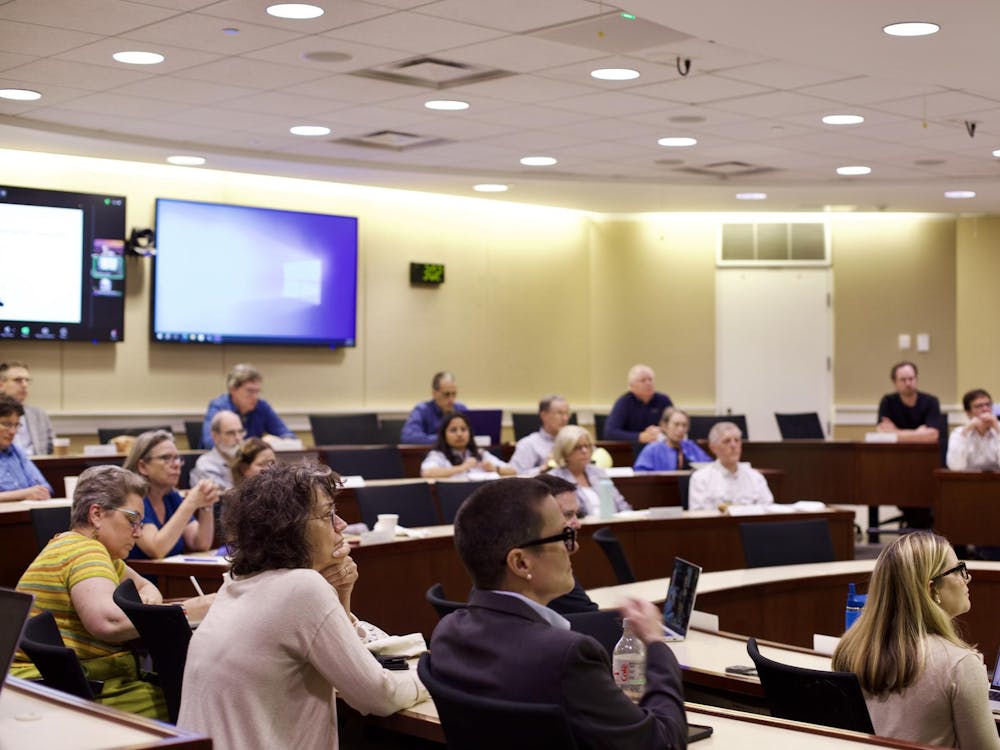The Board of Visitors Finance Committee met in the Board Room of the Rotunda Thursday afternoon to discuss and vote on new budget proposals for the University. Two notable issues on the table were the raising of both rates for student housing and meal plan prices for the 2018-19 academic year. The committee recommended the proposed rates for approval by the full board Friday.
The proposed a raise in the cost of University meal plans for the 2018-19 academic year accounts for increased staff and food costs as well as general operating expenses. The meal plan rates will rise from a range of zero to 3.47 percent with an average increase of 3.0 percent.
In light of extensive student feedback, the 2018-19 academic year will also see an increase in meal plan choices with a new, lower-priced 50-block plan at a three meal per week average. Resident Advisors will also be provided with the semester 80-block plan, which would average five meals a week, as opposed to the previous 50-block. These choices are intended to provide greater convenience and student interaction with upperclassmen who live off-Grounds but still want to eat at University facilities. The proposal was passed with no debate or contentions.
Price increases for University housing caused the most debate during the meeting, with some members in attendance disagreeing about the implications that raising housing costs will be — both for the students and for the University.
This proposal is intended to account for the $1.3 million service costs for the renovations to the McCormick Road Residence Halls, including costs for repairs, maintenance and general upkeep of the first-year dormitories. Prices for all undergraduate housing will increase an average 3.5 percent, but can individually range from 3.4 percent to 3.6 percent increases depending on the residential hall in question. With the fall 2017 occupancy rate for dormitories being 99 percent, this housing price bump will impact the approximately 40 percent of undergraduate students who live in on-Grounds housing.
There was also some debate among the Board members over when to approve proposed housing rates for the University of Virginia’s College at Wise, leading to a decision to defer action until April. This will allow the Board to have access to more information about the price increase while still giving prospective students enough time to factor in this potential tuition bump.
Further expansions in on-Grounds housing will also develop later this year. A Capital Plan for the construction of two new upperclassmen residence halls will be brought before the Board and officially proposed for consideration in June. One of these residential halls will be on Brandon Avenue and the location of the other has yet to be determined. The addition of these two halls is planned to provide 600 additional beds for non-first-year students.
According to a 2015 Master Planning Study of University housing, there has been an unmet demand from third and fourth year students for access on-Grounds housing. Although 97 percent of students reported they were satisfied with their current location, whether on or off-Grounds, University officials have been working to develop more accessible housing. The students overwhelmingly reported in the survey that the most important factor for any new student housing was proximity to central Grounds. Brandon Avenue was ranked the highest as a potential location for new housing.
The full Board will meet Friday to issue final votes on committee approvals.
Correction: This article previously misstated that the Finance Committee deferred action on the proposed housing rate increases for the University. The Committee approved the proposed rates for U.Va. in Charlottesville, but deferred action on proposed housing rates for the University of Virginia’s College at Wise.







